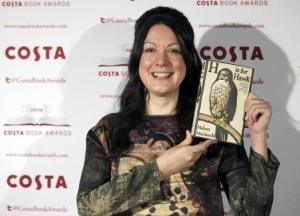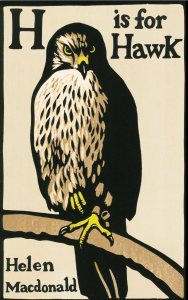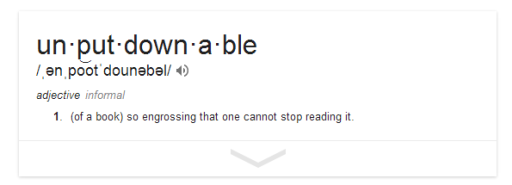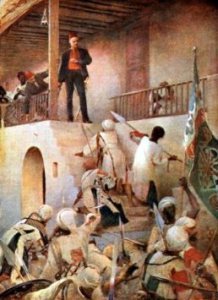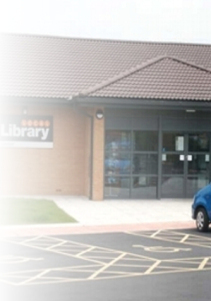Louise M.H. Miller's Blog, page 10
March 13, 2015
Charlie and the Chocolate Factory ��� Roald Dahl
Charlie and the Chocolate Factory ��� Roald Dahl
The Song for Mike Teavee
���The most important thing we���ve learned,
So far as children are concerned,
Them near your television set ���Is never, NEVER, NEVER let
Or better still, just don���t install
The idiotic thing at all.
In almost every house we���ve been,
We���ve watched the gaping at the screen.
They loll and slop and lounge about,
And stare until their eyes pop out.
(Last week in someone���s place we saw
A dozen eyes on the floor.)
��They sit and stare and stare and sit
Until they���re hypnotized by it,
Until they���re absolutely drunk
With all that shocking ghastly junk.
Oh yes, we know it keeps them still,
They don���t climb out the window sill,
They never fight or kick or punch,
They leave you free to cook the lunch
And wash the dishes in the sink ���
But did you ever stop to think,
To wonder just exactly what
This does to your beloved tot?
IT ROTS THE SENSES IN THE HEAD!
IT KILLS IMAGINATION DEAD!
IT CLOGS AND CLUTTERS UP THE MIND!
IT MAKES A CHILD SO DULL AND BLIND
HE CAN NO LONGER UNDERSTAND
A FANTASY, A FAIRYTALE!
HIS BRAIN BECOMES AS SOFT AS CHEESE!
HIS POWERS OF THINKING RUST AND FREEZE!
HE CANNOT THINK ��� HE ONLY SEES!
���All right!��� you���ll cry. ���All right!��� you���ll say,
What shall we do to entertain���
But if we take the set away,
Our darling children! Please explain!���
We���ll answer this by asking you,
���What used the darling ones to do?
How used they keep themselves contented
Before this monster was invented?���
Have you forgotten? Don���t you know?
We���ll say it very loud and slow:
THEY���USED���TO���READ! They���d READ and READ,
AND READ and READ, and then proceed
TO READ some more. Great Scott! Gadzooks!
One half their lives was reading books!
The nursery shelves held books galore!
Books cluttered up the nursery floor!
And in the bedroom, by the bed,
More books were waiting to be read!
Such wondrous, fine, fantastic tales
Of dragons, gypsies, queens, and hales
��And treasure isles, and distant shores
������������������������������������ Where smugglers rowed with muffled oars,
And pirates wearing purple pants,
And sailing ships and elephants,
And cannibals crouching round the pot,
Stirring away at something hot.
(It smells so good what can it be?
Good gracious, it���s Penelope.)
The younger ones had Beatrix Potter
With Mr Tod, the dirty rotter,
And squirrel Nutkin, Pigling Bland
And Mrs Tiggy-Winkle and ���
Just How The Camel Got His Hump,
And How The Monkey Lost His Rump,
And Mr Toad, and bless my soul,
There���s Mr Rat ad Mr Role ���
Oh, books, what books they used to know,
Thos children living long ago!
So please, oh please, we beg, we pray,
Go throw your TV set away,
And in its place you can install
A lovely bookshelf with lots of books,
Ignoring all the dirty looks,
The screams and yells, the bites and kicks,
And children hitting you with sticks ���
Fear not, because we promise you
That, in about a week or two
Of having nothing else to do,
They���ll now begin to feel the need
Of having something good to read.
And once they start ��� oh boy, oh joy!
You watch the slowly growing joy
That fills their hearts. They���ll grow so keen
They���ll wonder what they���d ever seen
In that ridiculous machine,
That nauseating, foul, unclean.
Repulsive television screen!
And later, each and every kid
Will love you more for what you did.
P.S. Regarding Mike Teaevee,
We very much regret that we
Shall simply have to wait and see
If we can get him back his height.
��But if we can���t ��� it serves him right.���
Filed under: Uncategorized Tagged: Charlie and the Chocolate Factory, children's fiction, Library, reading, Roald Dahl

March 2, 2015
I’ll tell you why I do like mondays
To borrow and re-word a line from the Boomtown Rats…I’ll tell you why I do like Mondays.
First and foremost I have to say that I do love my day job as a Librarian and that I work Tuesday – Friday.
So my Monday’s are for me and my writing.
It’s the day that I get to write and nothing else. I don’t have to go anywhere or do anything.
One. My housework is done from the weekend so the house is still (relatively) tidy.
Two. I don’t have to travel.
Three. I get to network with you fine people.
Four. I get to write.
Five. I get to research.
Six. I get to think.
Seven. I get to plan.
All in all I love Monday’s because it’s the day that I work on my writing. Which I love.
I’m lucky enough to have a day where I can dedicate my entire day to writing. And what’s more because my other half is out at work (sorry sweetie) I work all day, but also with a deadline. I guess I could go on for hours, and hours, and hours…you get the point. But when my partner/boyfriend gets back home, the writing goes away. You can do��too��much. And it keeps me focused so I don’t procrastinate.
With just having one full day in the (working) week to focus solely upon writing, I really have to focus my mind and my time so I can come away at the end of the day knowing it was productive. And it usually is. And then whatever I don’t get finished on a Monday can be finished throughout the rest of the coming week before and after my day job. So my entire week is productive. And I do something everyday.
So I love Mondays.
(Mostly) Uninterrupted writing.
(I do have to eat!)
Filed under: Uncategorized Tagged: beginning of the week, fresh start, i love mondays, mondays, procrasination, working week, writing

February 16, 2015
H is for Hawk…………
I have to be blunt here.��H is for Hawk��by Helen MacDonald��is not my cup of tea in the slightest. To say it won the Costa Book of the Year and to be given widespread praise and five-star reviews by many including being labelled as a ‘soaring triumph’ by the Telegraph, I expected something better, something much much better.
To say that I didn’t rate it highly is something of an understatement. Yes, there is some pretty prose on the pages, but even some of this seems rather forced. As if she’s trying to sound much more creative with words than she is.
Her analysis of TH White’s experience of his attempt at training his goshawk is really quite odd, and seems out of place, like a dissertation of White randomly intermixed in her memoir. ��I can’t criticize her method of dealing with her grief after the death of her father, everyone has their own way of dealing with grief. But even knowing this I still can’t say that I enjoyed the book, not even a little bit. I would have put it down, but I felt like it could have been one of those books which you only realize is good when you get to the very end. It wasn’t.
It was boring, trying to hard to sound intelligent (which I have no doubt that she is), and honestly I found the book irritating.
Again to say that it was apparently a ‘clear winner’ for the Costa Book of the Year award, I was immensely disappointed.
An easily forgotten read.
Filed under: Uncategorized Tagged: book review, Costa Book of the Year, goshawk, H is for Hawk, Helen MacDonald, Telegraph reviews, TH White

February 13, 2015
Discover the Delightful Paul Robeson
Paul Robeson
After watching some ‘old’ films of the 1930s, I have delightfully discovered the wonderfully talented, handsome, soulfully stirring, highly charismatic actor that was Paul Robeson��[see a excellent biography of Mr Robeson��from The Independent].
His soulful voice is tremendous, and the songs in the films steal the show.
His talents and his immensely popular screen and singing career made him a revered man of his time and a cultural giant only to be forgotten by history due to his political beliefs.
Paul Robeson was a man of many talents, he was a football player, a singer, an actor, a lawyer and a athlete, and a civil rights activist. He often spoke out against racism and for his efforts his found himself blacklisted during the paranoia of McCarthyism in the 1950s, which shattered his acting and singing career. I’ll not delve too deep into a biography here, for countless others have done a wonderful job before me. Today, I’m simply highlighting the talented greatness that was Paul Robeson.
Known for��Sanders of the River��(1935),��Song of Freedom��(1936), Show Boat (1936) and King Solomon’s Mines (1937)
Discover Mr Paul Robeson for yourself…..
��
Filed under: Uncategorized Tagged: African-American rights, British Empire, civil rights activist, Colonialism, King Solomon's Mines, McCarthyism, Paul Robeson, Sanders of the River, Show Boat, Song of Freedom

February 9, 2015
“Unputdownable”
I don’t know why but I really really dislike the word “Unputdownable”. I realize that it says it all in one word, but I still can’t stand it. It just really irks me whenever I read a review and it contains the word ‘unputdownable'; and I feel like screaming “use another word or phrase – it’s really annoying”. It’s a lazy word. A word combined from others, a buzz word to make book reviews sound punchy; so advertisers can put this one word on a book poster to make us buy the book. The more I see or hear the word the more it irritates me.
Just my opinion.
Filed under: Uncategorized Tagged: book reviews, buzz word, reviewers, unputdownable

February 5, 2015
How To Stay Positive
I may not have had a bad week, but its been far from great. More to the point I can’t pin-point why. A situation at work hasn’t made going to work exactly pleasant this week. But I’m not going into that now.
My point really is that I’ve not felt positive.
So how do you stay positive at work, at writing, (at life) when you don’t really feel it?
Take one day at a time.
Breathe.
Don’t read too much into things.
Think about what you want to accomplish and,
Congratulate yourself when you do something good.
Treat yourself.
Split your time up so you don’t feel overwhelmed.
Exercise. Eat Well. Sleep.
Take things slowly.
Help someone else. Give yourself a mood booster by helping someone.
Tell yourself that it’ll be ok.
Go easy on yourself. Don’t be so hard on yourself.
Think about what’s important (and positive) to you in life. Focus on the good.
and if it helps write down everything that’s bothering you, and forget about it for the rest of the day (or week).
Filed under: Uncategorized Tagged: how to stay positive, how to stay positive at work, negative thoughts, positive, positive thoughts, work, writing

February 2, 2015
Basic Tips for Writing a Book Series
Me and my boyfriend are super-hooked on TV series’. With streaming sites such as Netflix and NowTV the world of the TV box set has definitely become our oyster.
Whether it be Stargate SG1, Stargate Atlantis, House MD, The Walking Dead, House of Cards, Game of Thrones, Battlestar Galactica, Lost, Breaking Bad, Grey’s Anatomy……the list goes on and on…..we’ve been hooked from start to finish.
And we’re certainly not the only ones, what is it about what a TV series almost religiously, over films for example?
One thing that springs to mind is that each episode is generally about 40 minutes long, great if you’ve had a busy day, and you bedtime is fast approaching, and you don’t have the time, energy or patience to watch a full length film – perfect stick on an episode. But what makes the series so addictive – it isn’t just the length of each episode that keeps us coming back for more.
Does our addiction of series extend to book series’? I think it may do – if it’s done right. Stand alone books are great too – that’s what I generally do (although it is early days yet for me and my writing).
But what makes a great series – whether it be book or TV?
1. Characters
You have to create characters that people can identify with. You have to create one or two characters that will run throughout the series. And you’ve got to throw enough conflict at them for a series to be sustained. You can also allow your main character to grow and adapt and learn from experiences, but they mustn’t lose that part of them that made the reader identify – or root for them or with them in the first place.
2. Timeline
You have to be aware of the timeline at all times. You may decide for the timeline to cover a few weeks or generations – and so you have to be aware of how time passes within each book and within the series as a whole.
3. Continuity
You should��create a list or profile of the characters and the world that they live in and what’s happened to them. You may have originally given your main character blue eyes and by the end of the series they may have turned brown – I know that’s a simple example but it’s one that could happen remarkably easily – and be remarkably easy to avoid.
4. The World in Which They Live
Every great series has a background – some are created from scratch others taken from the real world, past or present. You need to identify in advance what elements of the world you are going to use, and where the action is going to take place. Most TV series’ for example have one main location where events take place and a handful of other locations. Use the same principle within your series. Even if your character moves quite considerably from place to place, like Richard Sharpe in Bernard Cornwell’s brilliant Sharpe series. The series takes him from India and into Europe including Spain, Portugal and France, but while the countries change the immediate back drop doesn’t always: barracks, open fields of marching men, city streets: all with similar characteristics. [This is perhaps a bit basic – but you see my point].
5. The Hook – Keeping Your Readers Hooked
You’ve got a great main character and a band of others to keep the series moving; most series have some over-arching hook to keep the readers coming back for more. It could be a detective like Agatha Christie’s creations, or it could be a book a year in a school, like the Harry Potter series; each book has got to have a conflict of its own to enable to stand up on its own in its own right. But also each book has to tie in with each other. There has to be some fluidity between each book in the series.
Hopefully, I’ve given you a rough idea of a few basic principles for writing a book series but I’ll post some links to get a better idea. Just search the internet for more examples on how to write a series.
http://blog.janicehardy.com/2013/08/7-tips-on-writing-series.html
http://www.thecreativepenn.com/2011/11/02/writing-a-series-continuation-issues/
http://theeditorsblog.net/2012/04/27/setting-up-a-series-a-readers-question/
http://thewritingcafe.tumblr.com/post/53866493758/book-series-occur-in-all-genres-especially
http://paperhangover.blogspot.co.uk/2011/04/writing-101-how-to-write-series-of.html
Filed under: Uncategorized Tagged: basic tips to write a book series, book series, how to write, tv series, writing

January 30, 2015
If You Were Trapped on a Desert Island….
If for some unknown reason you found yourself not only stranded on a desert island, but also able to plan which books you would take with you what book or books would you take with you?
There’s no minimum choice here, but let’s say the maximum is what you can physically carry so say up to five or six…
Obvious ones immediately jump to mind for me:
The Lord of the Rings by JRR Tolkien – an obvious perhaps boring choice, but it’s a fantastic read that I don’t think I’d ever tire of reading, but if on the off chance I do, there’s plenty of songs written throughout the book that I could try (probably badly) to compose music for.
The Stand by Stephen King – quite simple one of my favourite books. Like The Lord of the Rings it is a lengthy read giving me plenty to get me teeth into.
plus…….
Outdoor Survival Handbook: A Guide to the Resources and Materials Available in the Wild and How to Use Them…. by Ray Mears – a very practical choice (or similar titled survival book) to help me survive of course!
plus….
One of Terry Pratchett’s Discworld Series
plus…..
Fahrenheit 451��by Ray Bradbury��
plus….
Gormenghast��by Mervyn Peake
plus…
oh no wait, that’s my six….hmmmmm…..It’s a lot harder than it looks…..
What about you, what books would you take, or to ask in a different way which ones wouldn’t you leave behind?
Filed under: Uncategorized Tagged: desert island, desert island books, favourite books, top books

January 26, 2015
Gordon of Khartoum
Charles Gordon, British Army Officer and administrator, born 28 January 1833 – died 26 January 1885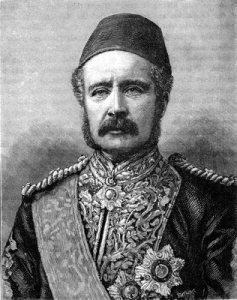
Charles Gordon, a British general became a national hero after distinguishing himself in the Crimea War, his exploits in China��in suppressing the Taiping uprising, after which he was dubbed ‘Chinese Gordon’, and his ill-fated defense of Khartoum against Sudanese rebels led by Muhammad Ahmad al-Mahdi.
After Khartoum had been under siege for a month, the Mahdi’s��forces broke through into the city, killing Gordon on 26 January 1885.
The British relief force arrived two days later.��His strong Christian faith led to a outcry at news of his death,��in which Gordon was martyred as a warrior-saint, and the government, particularly William Gladstone were blamed.
Later, historians have criticized Gordon’s role in the loss of Khartoum and ultimately his own death, by suggesting that he defied orders and refused to evacuate even when��it was still possible late into the siege.
George W Joy’s popular and romanticized portrayal of Gordon’s death –��General Gordon’s Last Stand,��1885
 Statue of Gordon by Hamo Thornycroft on the Victoria Embankment, in London.
Statue of Gordon by Hamo Thornycroft on the Victoria Embankment, in London.
Filed under: Uncategorized Tagged: British Empire, British history, charles gordon, chinese gordon, khartoum, Mahdi, on this day, Sudan, taiping

January 18, 2015
More than Just a Place to Borrow Books
Last week I attended our Communities Libraries Meeting with the four community libraries that have been taken over by local and community groups now that the local council authority closed some libraries in the area.
Throughout the company this has been happening and through visiting other community libraries in surrounding areas we have the disadvantage – or the advantage – of having little to no support from the council – apart from a one-off fund at the beginning.
The advantage of that – if you look at things positively – are that we’ve had to think beyond the box to grow.
So at the meeting we updated each other to how far we’ve come and what the future holds. We also discussed the publication of the Community Libraries Review which gave us confidence that we’re heading in the direction that they recommend.
So…..libraries – particularly community libraries – are much more than a place to borrow books. Of course, this is still a major part of libraries, but community libraries have had to widen their roles to draw people and funding in.
A to Z
A is for Arts and Crafts – colouring sheets and seasonal themed arts and crafts events for children – and adults.
B is for Books – fiction, non-fiction, crime, chick-lit, history, biographies……the list goes on; growing interest in e-book lending.
C is for Computers – access to computers for all, with full internet access and Microsoft.
D is for Decorations – the ability to decorate the library seasonally. Before being council-run it was beginning to get to the point where every library, like a high street store, would look the same, with no individuality. And no extra decorations. Ability now to decorate the library how we see fit.
E is for Everyone – welcoming everyone into the library and seeing how we can tailor what’s in the library to try to fit everyone’s needs. Whether it’s lending books, joining groups, getting online, meeting friends, job seekers….
F is for Friendship – providing an area for friends to meet; providing an atmosphere where people feel comfortable;
G is for Groups – providing the space for groups. Our current groups include knit and natter, writing groups, computer groups, plus the ability to set up groups should some suggest one.
H is for Hospitality – providing a space and opportunity for a cafe space. My particular library has such a space, with three tables and a cafe serving a selection of hot and cold drinks and some snack foods. This has brought in a number of people who didn’t use the library before, which has increased footfall generally, income, and has led them to use the other facilities and take books out – the Holy Grail of librarians.
I is for Information Services – computers, photocopying, printing, faxing, scanning, the Internet…
J is for Job Club – we hold a weekly job club which offers help and guidance in getting people back to work, whether it’s help applying for jobs online or help creating and improving CVs.
K is for Knowledge – whether it’ll be local or general knowledge, but more significantly the knowledge of where to direct a person to answer any questions, whether outside of the library, or websites or books.
L is for Local – trying to keep things local. Thinking about what local library users want from their local community library and tailoring it. One of our local libraries in our community library group is much more affluent than my library’s community, which impacts on what the library provides. This library has more groups tailored for adults, such as a community choir and bridge club, whereas our library is tailored for providing free seasonal events for children, such as a super-successful Santa’s Grotto in December.
M is for Meetings – We have a separate meeting room for use. We also have a more relaxed meeting area in the cafe seating area – so we can tailor for different meeting styles. Our bookshelves can be moved too to open up the library space to hold bigger social meeting events, like a book launch.
N is for Newsletter – we are currently creating a newsletter to be delivered to every household within the local area, updating the local community on how the library is run and what it offers.
O is for Online – Get Online – computer courses for beginners.
P is for Public – addressing what the public want and making our community library tailored to those that use it.
Q is for Quiet Areas.
R is for Recommendations – that our staff and volunteers read and are familiar with popular authors and titles so that they can recommend something if asked.
S is for Shhhh! Shhhh no longer. Libraries have left the “Shhhh!” far behind, and libraries are now a space of noise, chatting, relaxing and discussions.
T is for Twitter, WordPress, Website etc. We are using social networking to promote our library.
U is for Understanding – we are a place and a team who understands our residents and what we can provide – and understand that we continually need to think of new ways of increasing footfall and making the library a welcoming place.
V is for Volunteers – community libraries cannot be run by volunteers. I am fortunate enough to be a paid professional librarian – which is equally important. But I could not operate without the help of a team of fantastic volunteers.
W is for Wi-Fi
X is for ‘Xciting Events – We provide seasonal events that run through the year, which we try to keep as exciting as possible. Our events are usually aimed at children, but we do try to aim them at different age ranges so that no one is left out from a Teddy Bear’s Picnic to more complex arts and crafts events.
Y is for Youths – Probably every library throughout the country whether community or council led will admit that the Teenage section isn’t as popular as they’d like. The trick is to encourage youths to keep coming into the library – whether the in the cafe space or attending our seasonal events – and there’s a good chance that coming to the library will become second nature and they’ll enjoy it. And one can hope that one day they’ll come in a borrow a book. I’m an avid reader now and when I was a child, but between the ages of 11 and 14 I didn’t read that much, until I picked up adult fiction books. I think that now Teenage Fiction is a much more popular genre to write.
Z is for Zzzzzz. Stories for children. We keep the children’s section a fun and exciting place to be, so children want to pick books up, and parents want to read to them. Reading with children is a key part of a relationship and it is also a key role in establishing a routine bedtime for children, so they have a good night’s sleep.
Filed under: Uncategorized Tagged: books, community libraries, librarians, libraries, library development, local communities, reading

Louise M.H. Miller's Blog
- Louise M.H. Miller's profile
- 18 followers




